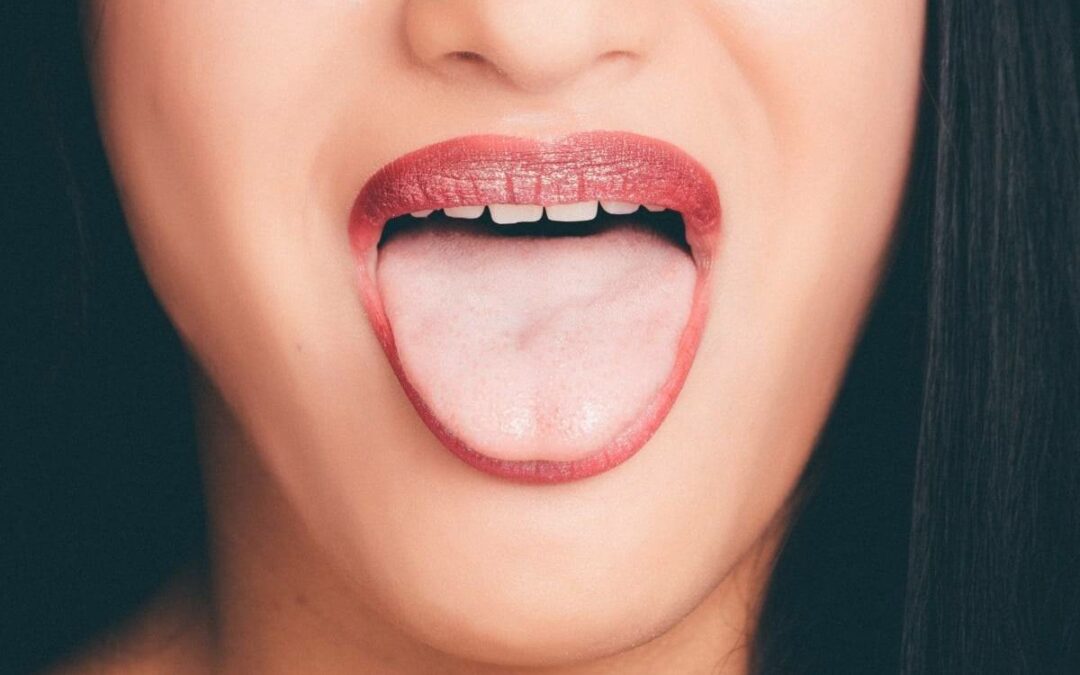Should you brush your tongue? That’s the million-dollar question. While most people think that brushing their teeth is enough, dentists say that you should also be cleaning your tongue. This is because research shows that there are more than 700 different types of bacteria in your mouth (1), many of which are on your tongue. This is because your tongue is not smooth, and bacteria can harbor within the crevices of the tongue.
So in addition to bacteria buildup which can lead to gum disease and esophagus cancer (2), if you brush your teeth but don’t brush your tongue, you could still be walking around with bad breath. This article covers how to brush your tongue and why tongue cleaning should be part of your daily oral healthcare routine.
5 Reasons Why You Should Brush Your Tongue
If you’re a germaphobe, then you’ll be displeased to know that your mouth is one dirty place. While a lot of bacteria accumulates on your teeth and gums, your tongue acts as the perfect hiding spot. It has a rough texture with lots of crevices and elevations for bacteria to live. Specifically, they like to hide in between your taste buds until they are removed (3). If you’re not brushing your tongue regularly, then bacteria can remain for long periods of time and eventually contribute to disease.
Here are some other reasons why you should be brushing your tongue regularly.
1. Rinsing Won’t Do the Trick.
If you think you can brush your teeth and rinse out your mouth to kill all the bacteria, think again. Rinsing alone won’t touch the buildup that’s on your tongue. You have to scrub it. This is because the buildup on your tongue acts as a biofilm that sticks together on the surface of your tongue. Mouth rinses only kill the top layer of the biofilm and leave inner layers untouched. Brushing your tongue is the only way to kill all layers of bacteria.
2. Your Tongue is Making Your Breath Smell.
Have you ever wondered why your breath still smells after brushing your teeth? It’s because your tongue is dirty! Your tongue may become coated in bacteria if you’re a smoker, have dry mouth, have poor oral hygiene, or have a yeast infection. Your breath can also smell due to some medications. Scraping your tongue can help break up the bacteria that might still be lingering after you brush your teeth.
3. Tongue Brushing Works!
There is solid research to show that brushing your tongue reduces the amount of bacteria in your mouth. One study found that after three days of tongue brushing, total bacteria on the tongue was significantly lower compared to baseline groups (4). After ten days, the amount of bacteria was even lower. In other words, the more you brush your tongue, the more you kill the bacteria in your mouth.
4. Tongue Bacteria Can Affect Your Heart and Brain.
Did you know that the bacteria in your mouth can play a role in heart disease? Research shows that oral bacteria can harm blood vessels or contribute to blood clots because they release toxins that are similar to proteins that are found in the bloodstream or in artery walls (5).
By responding to these toxins, your immune system could also harm your blood vessels or cause inflammation in the rest of the body, such as the arteries. This inflammation could lead to a heart attack or stroke.
Additional research shows that your mouth bacteria is linked to Alzheimer’s disease. The study found that Alzheimer’s disease is characterized by inflammation of the central nervous system. Periodontitis is an oral infection that is caused by the release of proinflammatory cytokines into the bloodstream. This inflammation plays a pivotal role in the development of Alzheimer’s disease (6).
You can easily kill much of the bacteria in your mouth by brushing your teeth. However, you will want to make sure you brush your tongue as well to keep your entire body healthy and free of inflammation.
5. Tongue Bacteria Affect Your Sense of Taste.
The biofilm of bacteria that accumulates on your tongue when you don’t brush it could cause your sense of taste to suffer. This is because bacteria tend to build up over your taste buds, which causes them to become less sensitive. You might find that food doesn’t taste as good as it once did when your tongue hasn’t been brushed.
6. You Could Get a Yeast Infection in Your Mouth.
Yeast infections can occur anywhere there is bacteria in your body, and your mouth is no exception. If you notice white patches on your tongue, then it could be a sign of a yeast infection. Scrubbing your tongue regularly helps reduce the bacteria that contribute to a yeast infection.
How To Clean Your Tongue
The next time you ask yourself, “Should I brush my tongue?” The answer should be, yes! Here is how to do it properly to reduce the risk of bad breath, inflammation, and yeast infections.
To start, you can either use your toothbrush or a tongue scraper. Some companies sell a toothbrush with a tongue scraper on the back so that you can use both. Your tongue scraper should have a rough surface that breaks up the bacteria. If you don’t want to buy one of these, then your toothbrush will work just fine.
Start by brushing your teeth with toothpaste. Rinse as you normally would and wash off your toothbrush. Apply more toothpaste to your toothbrush and scrub your tongue back and forth. It helps to stick your tongue out of your mouth so that you can reach as far back as possible. Make sure you brush back and forth as well as side to side.
Cover all areas of the tongue. Do not scrub so hard that your tongue bleeds. Use the same pressure as you would when brushing your teeth. Scrubbing harder won’t necessarily get more bacteria off your tongue. When you are done, rinse as you normally would.
Repeat this process twice a day or whenever you brush your teeth. You may wish to follow up with an antibacterial rinse to help keep all areas of your mouth clean. Rinse your toothbrush and hang up to dry. Be sure to replace it often as bacteria can accumulate on your toothbrush as well.

